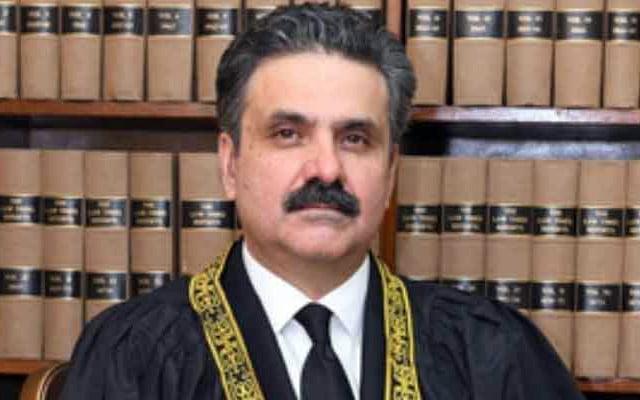Chief Justice of Pakistan Yahya Afridi has expressed support for the transfer of judges from other high courts to Islamabad High Court and calls it a positive and necessary step.
In a conversation with journalists at the Press Association of Supreme Court’s Oath-Take Certony, Afridi addressed the question of the judges’ transfer and highlighted its importance to national entity, Express News reported.
He explained that Islamabad, the symbol of the federal government, should have a balanced representation from all linguistic communities throughout Pakistan.
Afridi said, “Islamabad is not just a marble building; it represents the federal units in Pakistan. This transfer is in line with the ideals of gender equality and representation.” He referred to the fact that judges from different linguistic backgrounds, such as Balochi, Punjabi and Sindhi-speaking judges, were named Islamabad High Court, which performed the nation’s unity.
Chief Justice added that, according to Islamabad High Court Act, the Court has a mandate to represent all federal units equally, and this step is in accordance with the constitutional framework transferring three judges to Islamabad.
While dealing with the question of seniority, Afridi assured that the case would be settled correctly within the court’s framework. He emphasized that it was important to separate the questions of transfers and seniority and avoid premature conclusions.
In the discussion of court reforms, Afridi also mentioned that he had approved a study trip for judges to South Africa, where the judges of three Supreme Court and five Supreme Court judges would participate. He highlighted the importance of legal education and improving the legal system throughout Pakistan and noted that there are currently 692 legal officers in the country.
Afridi revealed his commitment to involving legal associations in future educational and reform initiatives, including the Federal Judicial Academy’s initiatives for educational lawyers in Malakand.
Chief Justice also discussed continuous efforts to fill out vacancies in the Supreme Court. He noted that additional judges were needed to manage the workload, especially under busy legal sessions when the judges face considerable pressure due to holidays.
Furthermore, Afridi outlined that the next meeting of the National Judicial Policy Making Committee would focus on policies related to district courts during the morning and evening, and he called for further consultations with selected legal professionals.
As for the questions about missing persons, Afridi confirmed his commitment to resolving the case and said that reforms would not continue behind closed doors, but through cooperation and consultations.
He further added that communication around legal affairs would be transparent and that issues related to correspondence between judges would soon be resolved.
Chief Justice also expressed his willingness to meet with judges throughout Pakistan and said he would participate in relaxed conversations and tackle any concerns.



